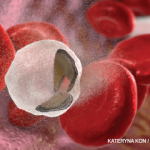All rheumatologists have observed the impact of their patients’ mental health status on the long-term treatment of rheumatologic conditions. Depression, anxiety and even loneliness can lead to poor clinical outcomes and nonadherence to treatment, whether the patient is following medication regimens or participating in regular exercise. On the other hand, a patient’s resilience and positive…









